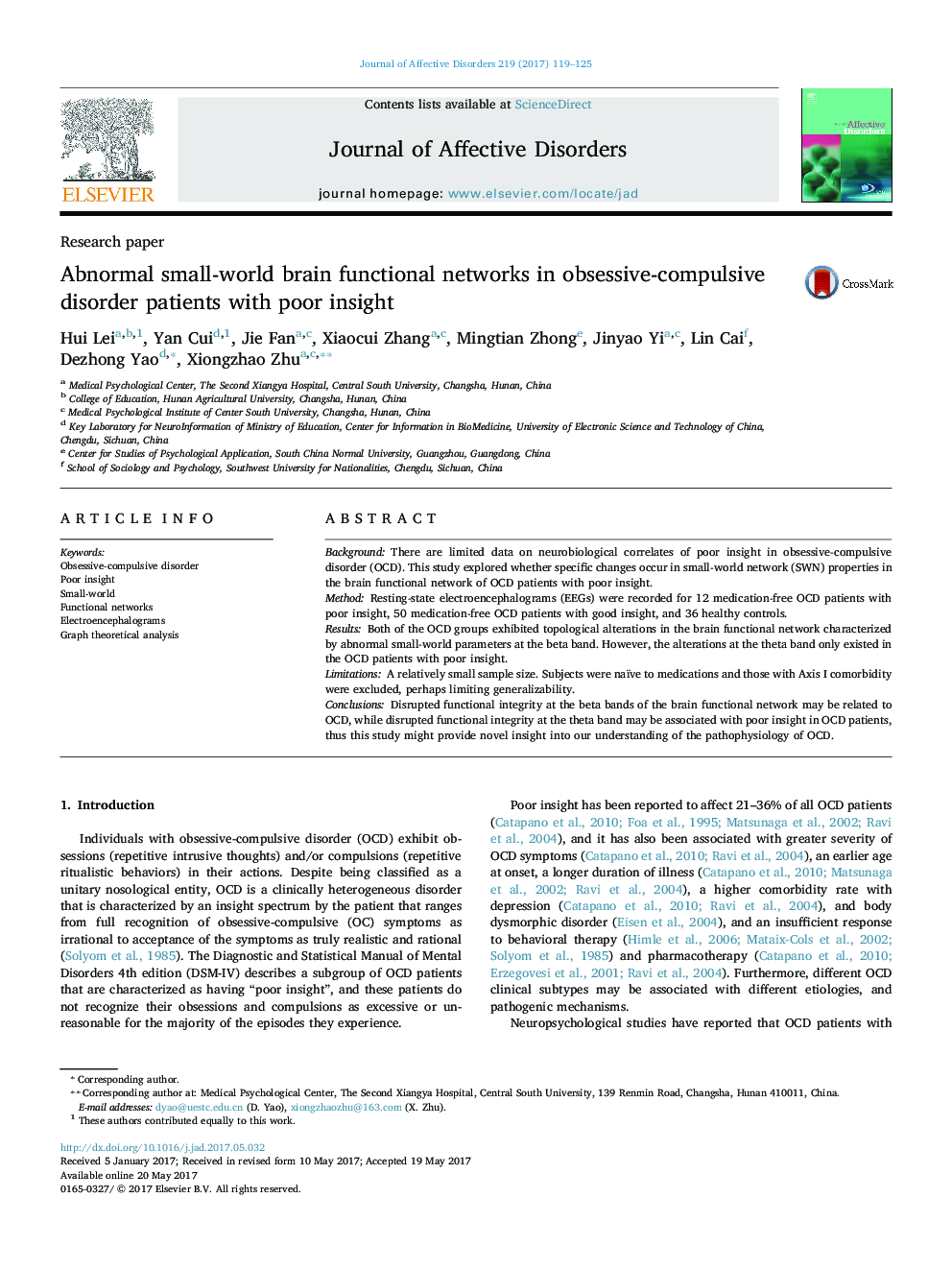| Article ID | Journal | Published Year | Pages | File Type |
|---|---|---|---|---|
| 5721882 | Journal of Affective Disorders | 2017 | 7 Pages |
â¢Disrupted functional integrity of the brain functional network was found in OCD.â¢Both of the OCD groups exhibited topological alterations at the beta band.â¢The alterations at the theta band only existed in the OCD patients with poor insight.
BackgroundThere are limited data on neurobiological correlates of poor insight in obsessive-compulsive disorder (OCD). This study explored whether specific changes occur in small-world network (SWN) properties in the brain functional network of OCD patients with poor insight.MethodResting-state electroencephalograms (EEGs) were recorded for 12 medication-free OCD patients with poor insight, 50 medication-free OCD patients with good insight, and 36 healthy controls.ResultsBoth of the OCD groups exhibited topological alterations in the brain functional network characterized by abnormal small-world parameters at the beta band. However, the alterations at the theta band only existed in the OCD patients with poor insight.LimitationsA relatively small sample size. Subjects were naïve to medications and those with Axis I comorbidity were excluded, perhaps limiting generalizability.ConclusionsDisrupted functional integrity at the beta bands of the brain functional network may be related to OCD, while disrupted functional integrity at the theta band may be associated with poor insight in OCD patients, thus this study might provide novel insight into our understanding of the pathophysiology of OCD.
